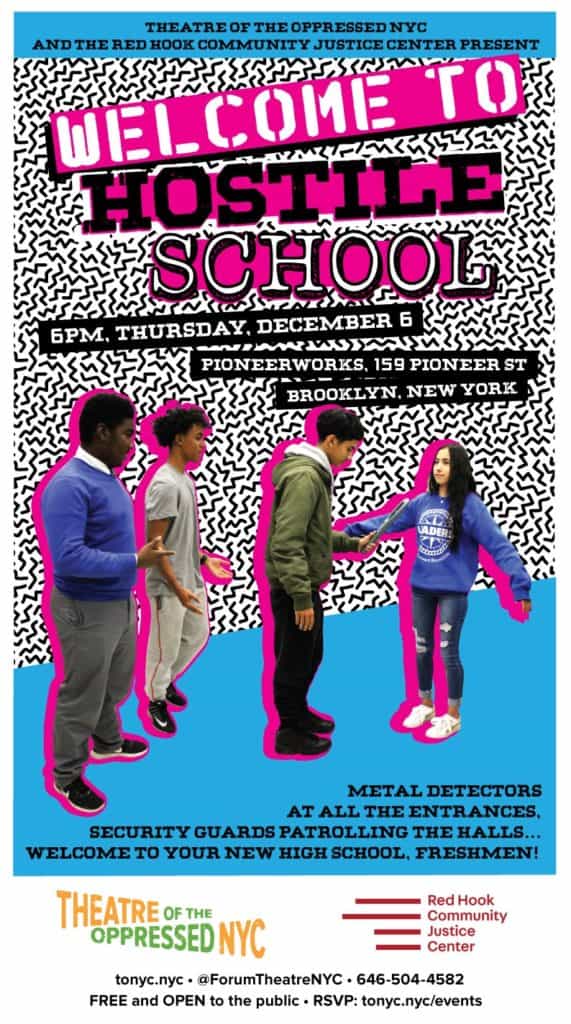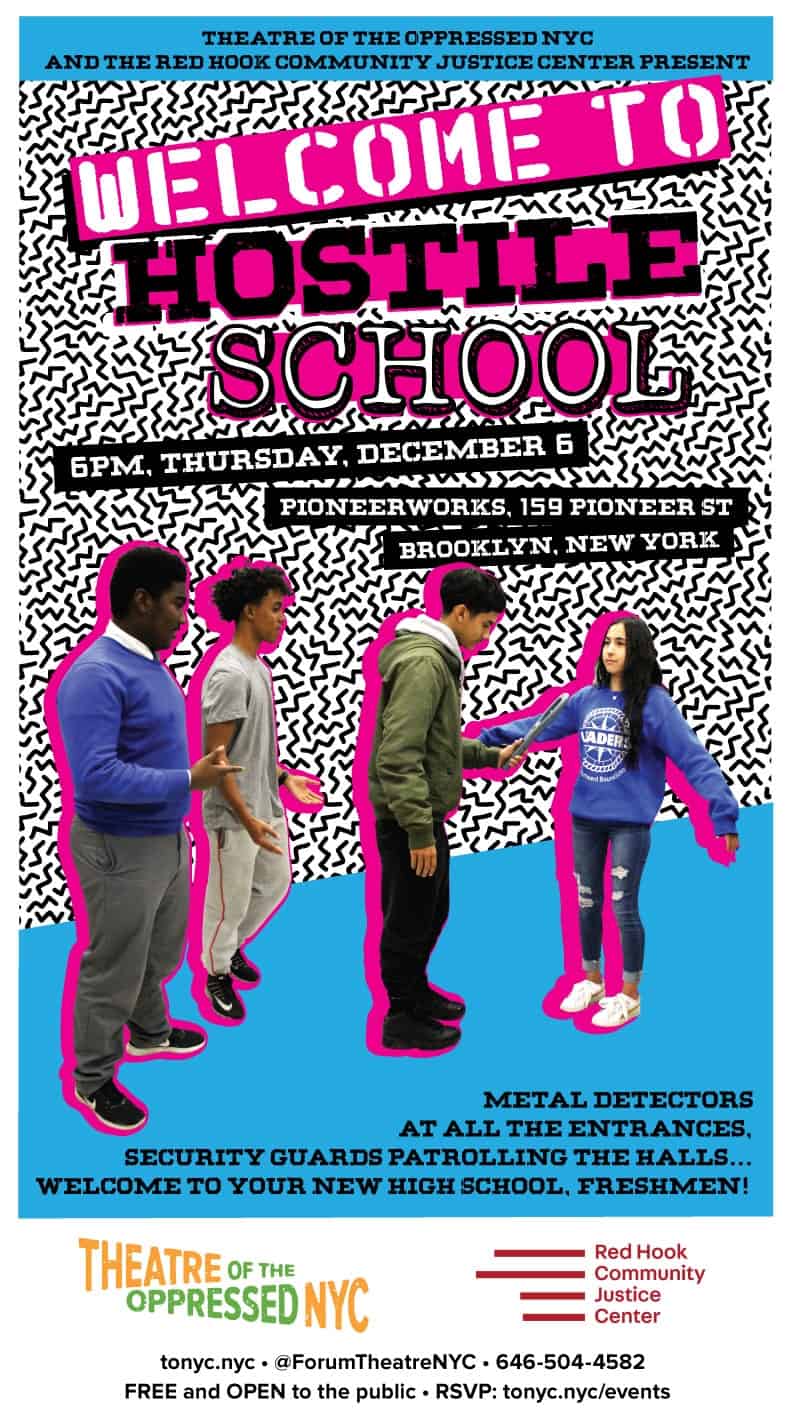
Theater of the Oppressed gives teenagers an opportunity and an outlet to share stories and life experiences that they might not be able to otherwise.
This program chose to partner with the Red Hook Justice Center because they they both engage young people in social justice issues. They will be wrapping up their third session of the year at the Justice Center in December. There is a long process between finding the participants and the final performance.
During the summer session at the Justice Center the group met twice a week but during this fall session they have been rehearsing once a week.
The beginning of each session include games, exercises and conversations so that the group can get to know each other. The group will then collaborate on a focus for their play and will form their scenes based on the support of two of the facilitators.
A general topic focus for the program is to talk about how systems or outside circumstances can get in their way, or in the way of people close to them. They investigate the social norms or rules that cause problems in their community.
The specific focus during this fall session has been on education and the various obstacles that the kids face.
“Some are in public schools, some are in charter schools, some are in religious schools,” Sulu LeoNimm said in a Star-Revue interview. LeoNimm is a facilitator, or what the group calls, a “Joker.”
“The focus is noticing how young people in New York are experiencing education very differently. Sometimes that is via the security that is in some schools. Sometimes that is how their teachers treat them / stereotype them,” she said.
The performance will be interactive with the audience as the teenagers have been talking a lot about what they have seen from their teachers in school. They will want to know how their experiences might be different than that of the audience.
“In our conversation we always mix talking with doing improvisation to show what people are talking about,” LeoNimm added. “The audience will see the play and then they will be participating in a conversation with the actors. They will be asked to identify what the problems are in the situation.”
The treatment in school and what they go through has an effect on them and their experience has made them frustrated, annoyed and has even gotten in the way of some of them getting their education.
During the performance, individuals from the audience will be invited to come on stage to replay scenes where they think there could be an opportunity for change. The idea is for this to be collaborative and community members idea about how to fix the issues.
[pullquote]“I think for some of them it’s fun. For some of them it is an opportunity to talk about things that are going on that may or may not be available to them in other spaces. Some of them are doing this with their friends, so it is an opportunity to do that together.”[/pullquote]
This program can have a profound impact on the participants as it is a creative outlet that they don’t get in their day to day life.
“We have some people who have been doing this for a couple of years,” LeoNimm. “I think for some of them it’s fun. For some of them it is an opportunity to talk about things that are going on that may or may not be available to them in other spaces. Some of them are doing this with their friends, so it is an opportunity to do that together.”
The teenagers who have already been involved with the Youth Court Program at the Justice Center have a real interest in figuring out how to change the system and especially issues that affect young people.
According to the program director, these individuals associated with the Youth Court Program are frustrated with the schools, courts and how punishment works for young people right now and this is a way to have a wider outlet for this conversation.
The new session will likely begin in January. For teenagers who want to get involved the simply have to sign up at the Justice Center.
LeoNimm wants youth who know that they will be able to come to rehearsals on a regular basis and actively participate. The participants will be able to get to know everyone the first day and then decide if they want to continue in following weeks.
“My best invitation for people who are interested would be to come to the show at Pioneer Works and see what this group makes so they know what they are getting into,” LeoNimm added. “If they are excited to try it, keep your eye out for postings in the neighborhood in January.”
The final performance this year will be December 6th at Pioneerworks.









